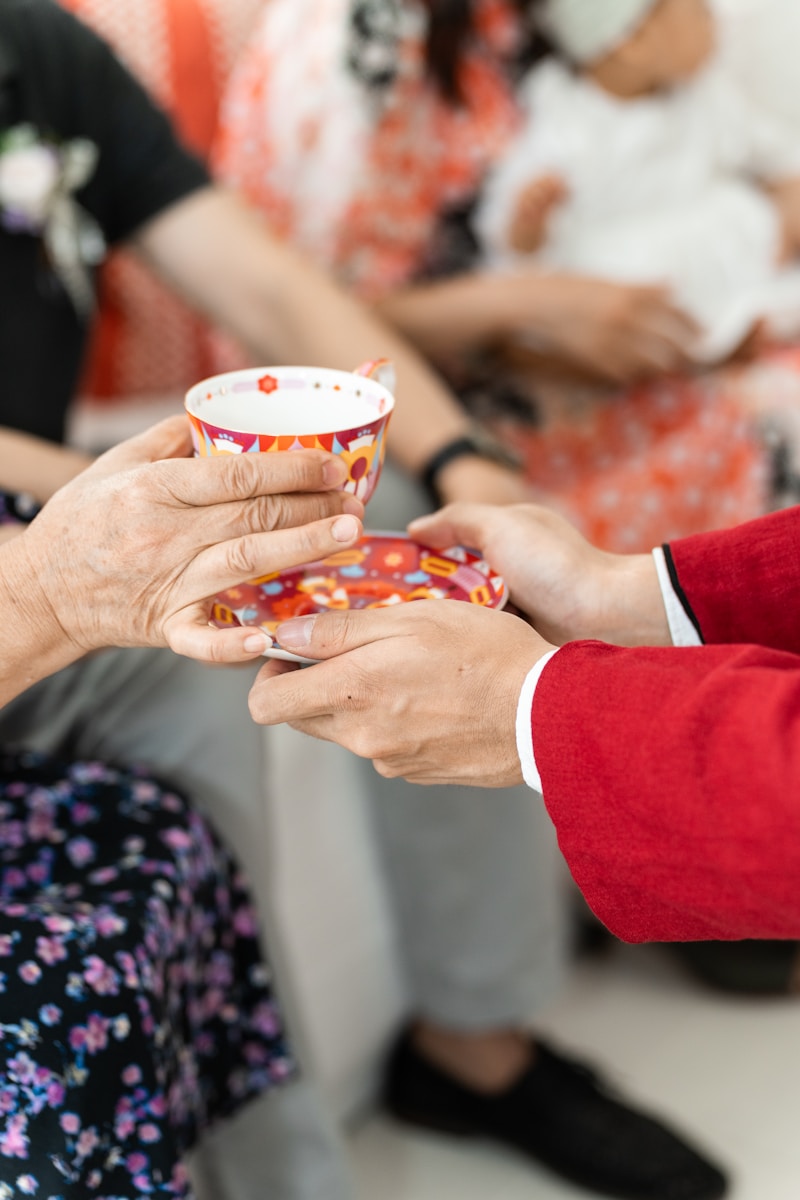Exploring Cross-Cultural Wedding Celebrations: A Global Perspective
Exploring Cross-Cultural Wedding Celebrations: A Global Perspective
Weddings are a beautiful tapestry of love and tradition. However, in our increasingly interconnected world, cross-cultural wedding celebrations are becoming more prevalent. These unique ceremonies blend elements from different cultures, creating a rich and meaningful experience that reflects the diverse backgrounds of the couple. In this article, we will delve into various aspects of cross-cultural weddings, explore popular traditions, and offer insights for couples looking to embrace this trend.
What Are Cross-Cultural Wedding Celebrations?
Cross-cultural wedding celebrations refer to ceremonies where the couple comes from different cultural backgrounds and incorporates elements from both traditions. This fusion can range from wedding attire and rituals to food and decorations, resulting in a vibrant celebration that honors each partner's heritage. This type of ceremony allows families and friends to witness and participate in a fusion of customs, making the event even more special.
The Importance of Cultural Traditions
Couples who opt for cross-cultural weddings often face the challenge of merging different traditions. It's essential to understand the significance behind each cultural practice. For example, in Indian weddings, the Mehndi ceremony involves intricate henna designs on the bride’s hands, believed to bring good luck. On the other hand, in traditional Western weddings, the bride often wears a white dress, symbolizing purity.
Table of Common Cross-Cultural Wedding Practices
| Cultural Element | Origin | Significance |
| Mehndi Ceremony | India | Good luck and joy |
| Jumping the Broom | African American | Union of two families |
| Chinese Tea Ceremony | China | Respect to elders |
| Seven Steps Ceremony | India | Commitment to each other |
Popular Cross-Cultural Wedding Traditions
There are countless beautiful traditions to explore within cross-cultural weddings. Below are some of the most popular customs that couples often incorporate into their celebrations:
1. The Chinese Tea Ceremony
This ancient custom is a way for the couple to show respect to their parents and family. During the ceremony, the couple serves tea to their elders, who in turn give them blessings and gifts. Incorporating this ritual into a wedding gives it a profound, heartfelt touch.
2. Jumping the Broom
A tradition with African American roots, jumping the broom symbolizes the couple's new beginning and their union as a family. This act is often performed at the end of the ceremony and can be beautifully customized by incorporating personal touches, such as decorated brooms or a special location.
3. The Seven Steps
In many Hindu weddings, the couple takes seven sacred steps together, known as 'Saptapadi'. Each step represents a vow they take for their married life. This tradition can be uniquely adapted into a cross-cultural ceremony by blending it with their partner's specific vows or commitments.

Incorporating Food and Music
No wedding celebration is complete without delicious food and music. Food can be an essential factor in cross-cultural weddings, representing various cultures’ culinary traditions. For example, you can serve Italian pasta dishes, Indian curry, and Mexican tacos, creating a delightful fusion menu that caters to diverse tastes.
Music is equally important. It sets the mood for the celebration and can include cultural songs from both backgrounds. Consider hiring musicians who specialize in both styles or create a playlist that includes traditional and modern songs from each culture for a seamless blend.
Dressing for a Cross-Cultural Wedding
The couple’s attire can also reflect their cultural backgrounds. The bride might wear a traditional dress from her culture while incorporating elements from her partner’s heritage. For example, a white wedding gown can be paired with an intricately designed shawl or scarf from Indian culture. The groom can also wear a fusion of attire, such as a traditional suit with ethnic accessories.
Tips for Planning a Cross-Cultural Wedding
Planning a cross-cultural wedding can be both exciting and challenging. Here are some tips that may help couples navigate their unique celebration:
1. Communicate Openly
It’s essential for couples to communicate about their cultural backgrounds and what traditions they wish to incorporate. Discuss preferences openly and be sensitive to each other’s customs to ensure both partners feel represented.
2. Involve Families
Family involvement is crucial in cross-cultural weddings. Involving family members in planning and decision-making can help maintain harmony and encourage acceptance of the merging cultures. They may also provide valuable insight into traditional customs.
3. Use a Professional Wedding Planner
Hiring a wedding planner experienced in cross-cultural weddings can ease the planning process. They can help find vendors familiar with diverse traditions and assist in elegantly merging different elements into one cohesive event.
4. Embrace Flexibility
Not every blended tradition will mesh perfectly, and that's okay. Couples should approach the planning process with an open mind and be willing to adapt as needed for a harmonious celebration.
Conclusion and Final Thoughts
Cross-cultural wedding celebrations are a wonderful way to honor the rich heritages of both partners. By incorporating various customs, foods, and traditions, couples can create a unique experience that will be cherished by all. It’s essential to communicate, involve families, and remain flexible during the planning process to ensure a seamless blend of cultures. As you embark on this exciting journey of love and unity, remember that the beauty of cross-cultural weddings lies in their diversity and the symbols of respect and commitment they embody.
Whether you are planning a small intimate gathering or a lavish celebration, embracing your cultural differences can make your wedding day truly unforgettable. Good luck, and may your love story inspire others to celebrate their unique heritages!
